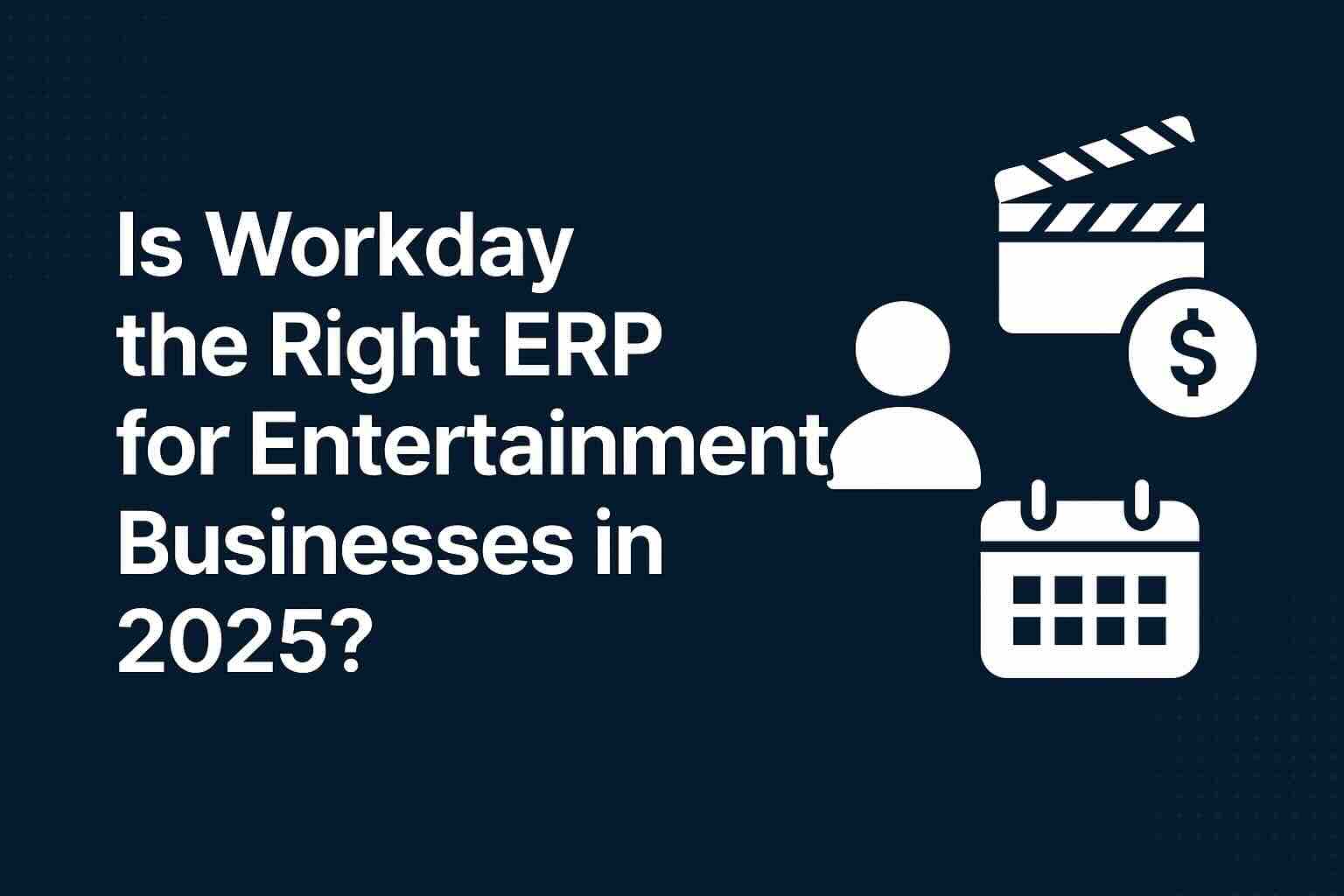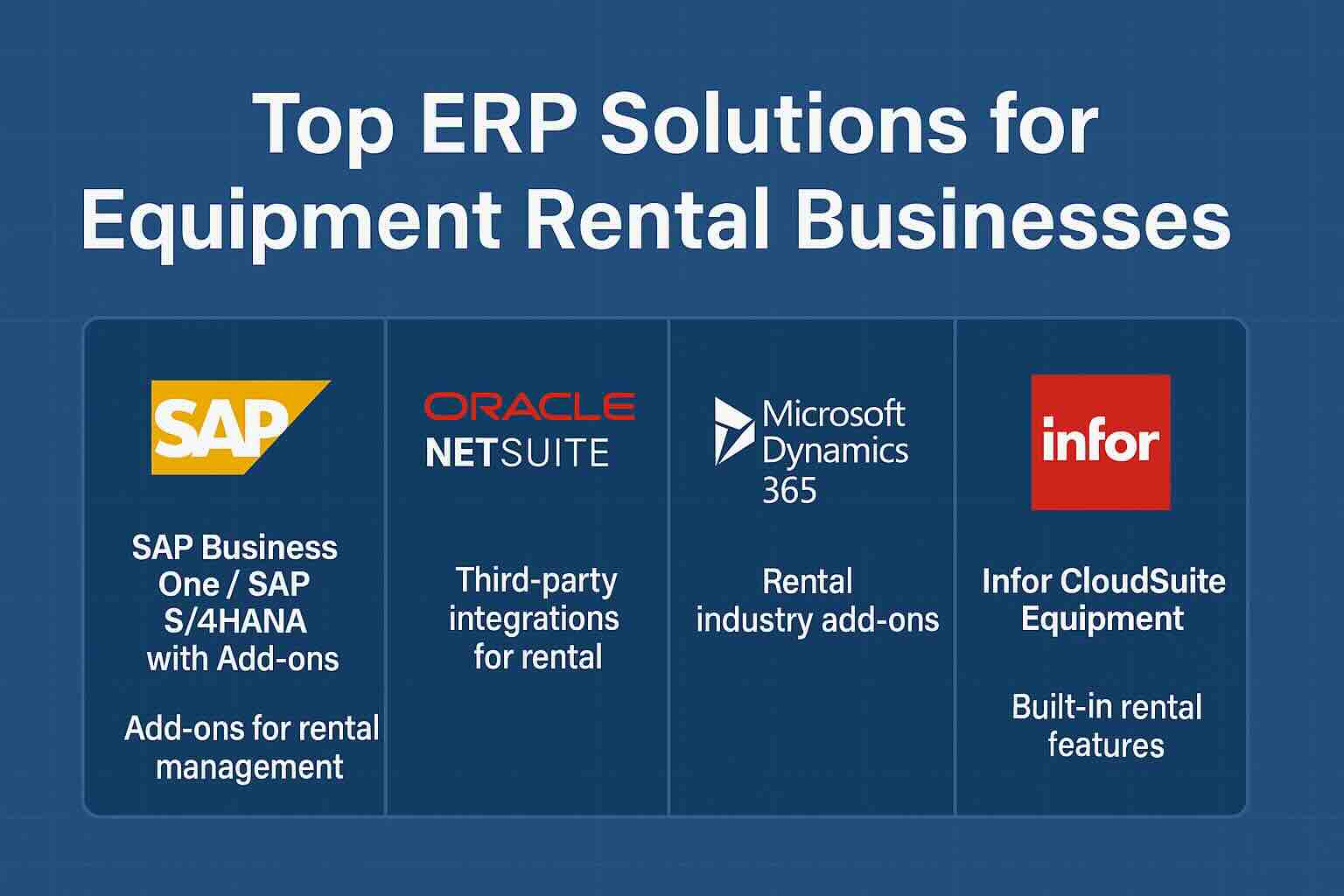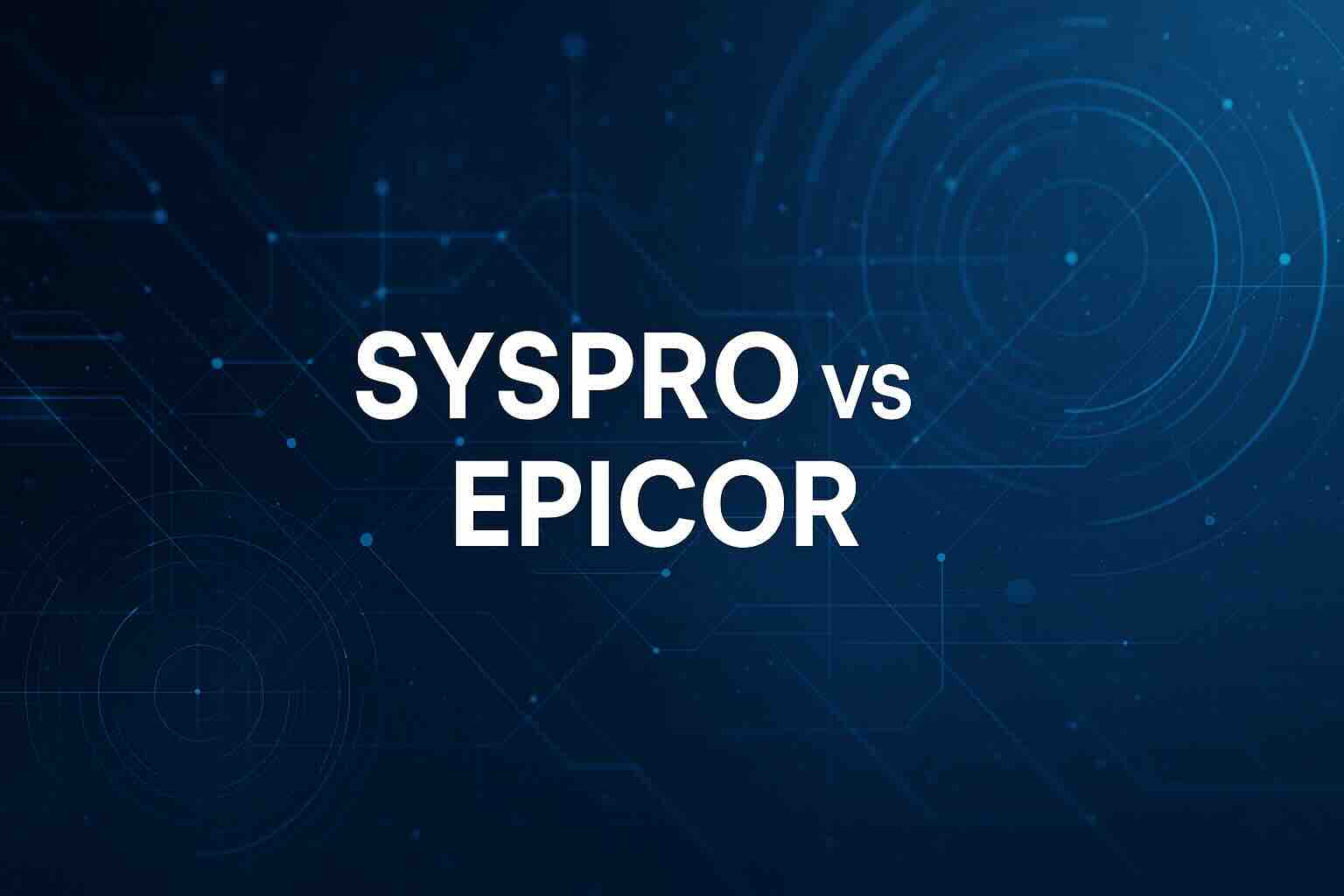Is Workday the Right ERP for Entertainment Businesses in 2025?

Managing talent, productions, and budgets across multiple projects can quickly become chaotic without the right operational backbone. In an industry where timelines are tight, teams are fluid, and financial oversight is critical, choosing the right Enterprise Resource Planning (ERP) system can make all the difference. One solution increasingly adopted by large and mid-sized companies is Workday. But how well does Workday meet the unique demands of the entertainment industry?
This guide explores the strengths, limitations, and evolving capabilities of Workday for entertainment business needs in 2025, helping you determine if it’s the right fit for your operations.
Strengths of Workday for Entertainment Businesses
1. Best-in-Class Human Capital Management (HCM)
Workday remains a global leader in HCM, a critical area for entertainment companies that rely on dynamic, project-based workforces. Whether managing cast, crew, or corporate staff, Workday streamlines:
-
Recruitment and onboarding
-
Time tracking and payroll
-
Union compliance and contract management
-
Benefits administration
-
Talent forecasting and planning
With Workday’s AI-enhanced talent insights, entertainment businesses can better plan staffing needs for upcoming projects and forecast workforce availability.
2. Real-Time Financial Management
Entertainment companies deal with large budgets, fluctuating cash flows, and complex expense tracking. Workday’s financial management suite includes:
-
Budgeting and forecasting
-
Real-time general ledger and reporting
-
Expense and asset tracking
-
Compliance tools for various regulations and unions
With its real-time financial visibility and AI-driven anomaly detection, Workday enables studios and production companies to respond quickly to financial risks and opportunities.
3. Project Management and Scheduling
Productions often involve overlapping schedules and short timelines. Workday’s project management features help entertainment businesses:
-
Plan production timelines
-
Allocate resources efficiently
-
Track progress and adjust in real-time
-
Monitor spend against budget
While it may not replace specialized tools like Movie Magic or StudioBinder, Workday provides an excellent high-level project control system for managing multiple productions simultaneously.
4. Advanced Analytics and Reporting
Using Workday’s Prism Analytics and adaptive planning tools, businesses gain deep insights into:
-
Audience trends and viewer engagement
-
Financial performance by project or department
-
Workforce productivity and utilization
This data empowers entertainment executives to make strategic, data-informed decisions that boost profitability and reduce inefficiencies.
5. User Experience and Accessibility
With an intuitive interface and mobile-friendly design, Workday is easy to adopt across teams—from on-set crew to finance managers in the office. Personalized dashboards and guided workflows improve user productivity and reduce the learning curve.
Limitations of Workday for Entertainment Business Operations
1. High Implementation Costs
Workday’s pricing model and setup costs can be a barrier, particularly for smaller studios or independent production companies. Subscription fees, consulting support, and integration work add up quickly.
2. Complex Implementation Process
Implementing Workday across HR, finance, and operations requires time and skilled resources. For large entertainment enterprises with legacy systems, the migration process can take several months, if not longer.
3. Customization Limitations
While Workday is highly configurable, it may fall short in accommodating niche entertainment business needs such as royalty calculations, residuals tracking, or rights management. Additional tools or middleware may be required.
4. Integration with Industry-Specific Tools
Though Workday has improved its API and Workday Extend capabilities, seamless integration with specialized tools like Avid, Movie Magic, or SAG-AFTRA databases often requires custom development.
5. Training and Change Management
Due to its broad capabilities, Workday requires thorough user training. For production companies used to lighter tools, onboarding can be time-consuming and may temporarily affect productivity.
Workday vs. Other ERP Systems for Entertainment
While Workday is a strong contender, it’s not the only ERP option for entertainment businesses. Depending on your company’s size, needs, and budget, you might also evaluate:
-
Oracle Cloud ERP – Highly customizable with deep finance capabilities.
-
SAP S/4HANA – Strong in large-scale media operations and global enterprises.
-
NetSuite – A more cost-effective option for small to mid-sized production companies.
Workday stands out for HR and finance, but may require integrations to fully meet entertainment-specific requirements.
Conclusion: Is Workday Right for Your Entertainment Business?
Workday for entertainment business operations offers robust human capital management, real-time financial control, and insightful analytics – all key to thriving in today’s content-driven economy. Its strengths make it a smart choice for studios and media companies looking to unify their operations under one cloud-based system.
However, challenges like high implementation costs, integration complexities, and customization limitations should not be overlooked. Workday is best suited for medium to large entertainment companies with the resources to invest in a full-featured ERP platform. To find out more about Workday you can visit this link.
Ready to Compare Your ERP Options?
Implementing the right ERP system could be the game-changer your business needs. With our AI-powered Compare ERP tool, you can effortlessly explore and compare solutions tailored to your unique business needs. Our advanced engine analyzes millions of data points across 100+ ERP solutions, delivering your top three picks based on your business priorities. Best of all, it’s completely free.
Take the first step toward streamlining operations and boosting productivity and start comparing today.









